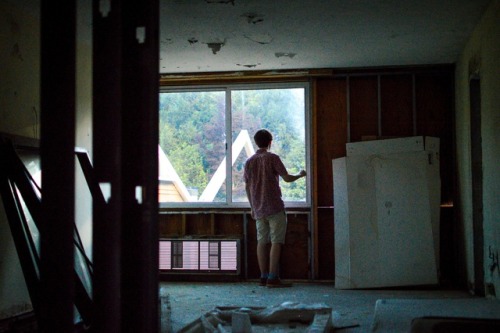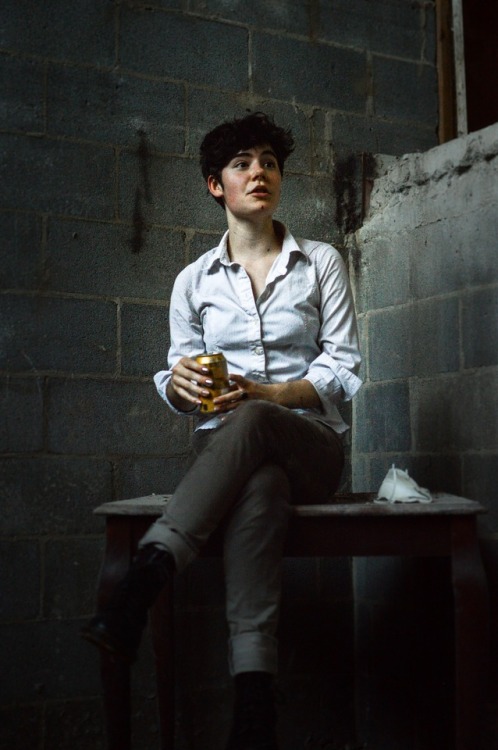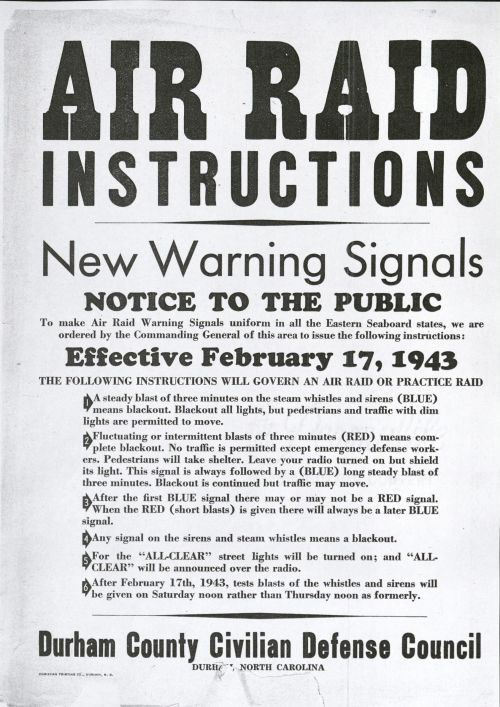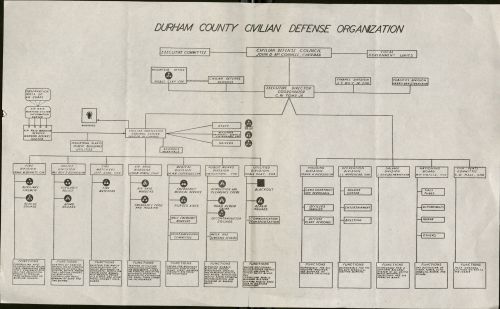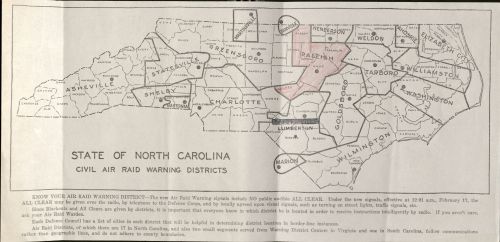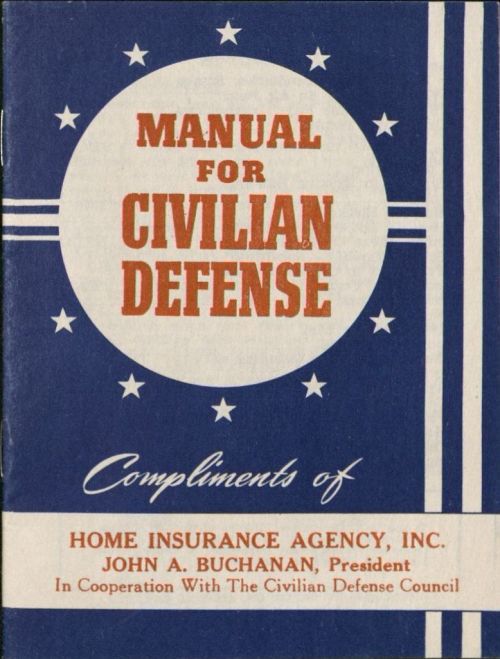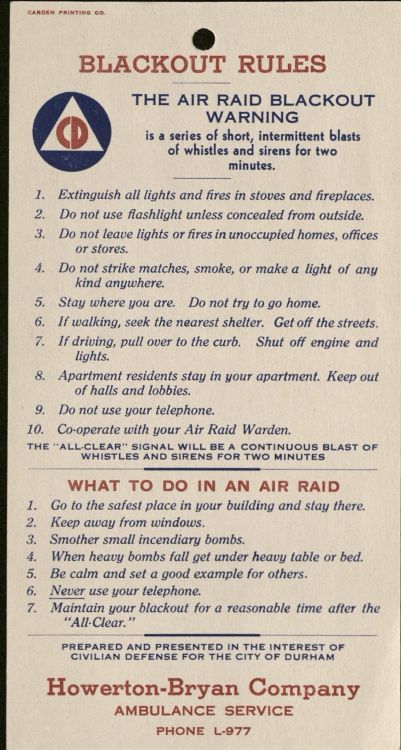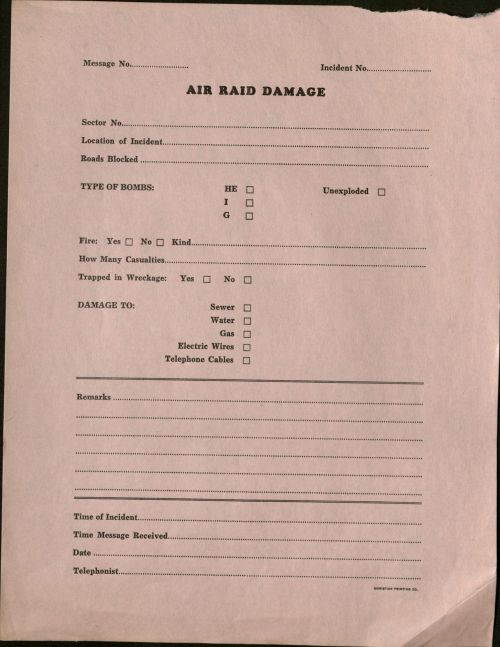#durham nc
Second in a set of photos taken of dear friends in an abandoned hotel in Durham NC (6/14/2016)
Post link
First in a set of photos taken of some dear friends in an abandoned hotel in Durham NC (6/14/2016)
Post link
Durham County, NC joined in the nation’s civil defense efforts during WWII. Worried about the possibility of an enemy attack, residents and local leaders tried to be prepared and to prevent panic. Posters and pamphlets told people what to do in the event of an aid raid. Detailed organizational charts were produced dividing responsibility among local groups and many citizens volunteered with the civilian defense corps. There was even a handy form to fill out if damaged occurred during an attack. (Fortunately, it stayed blank.)
Durham never saw an enemy attack in WWII, but they certainly seemed ready. Auxiliary fireman, rescue squads, bomb squads, fire watchers, decontamination squads, road repair crews, and nurse’s aids were ready to jump into action as soon as they heard sirens. Civil defense efforts offered women and other Americans unable to serve on the front lines the chance to contribute to the war effort.
From the Kenneth W. Clark Civil Defense vertical file, 1942-1943. Kenneth Clark’s wife, Adelaide E. Dickinson, served as the executive secretary for the Durham County Civilian Defense Council.
Post link
Catherine Opie
Melissa & Lake,
Durham North Carolina (from the Domestic series),
1998. Chromogenic print
In 1998, Opie traveled cross-country in her motor home for two months in order to photograph lesbian couples. This series, called Domestic—of which Melissa & Lake, Durham, North Carolina is an example—presents these couples involved in everyday, household activities: relaxing in their backyard, hanging out in their kitchen, playing with their children. There is no sensationalism here. Much like the formal studio portraits before them, these intimate photographs speak both to Opie’s identification with her subjects and to the overwhelming absence of such images in mainstream representations.
Post link
Interview by Cleo Hereford ‘09
Wellesley Underground loves seeing our sibs involved in the political process at all levels but particularly the local, municipal level where substantial change can be affected. In North Carolina, one of our sibs has joined the race for Durham City Council in Ward 1. A 2009 Wellesley graduate, Marion Johnson also received a degree in Public Policy from Duke University in 2014. After time spent in Washington, DC, Johnson returned to North Carolina, where she grew up, and currently works for Frontline Solutions, a black-owned consulting firm that “serves the philanthropic and nonprofit sectors.”
We caught up with Marion to find out more about her run for City Council.
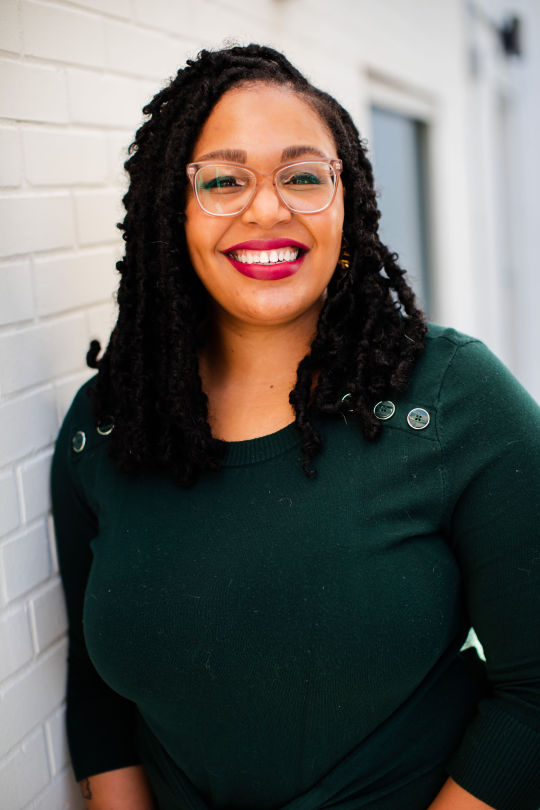
Thanks for chatting with WU, Marion! You grew up in North Carolina, and you’re now running for Durham City Council. Why run for the City Council and why this year?
Thanks so much for having me! I’m a big fan of y’all. I’ve worked on a few Durham City Council campaigns, and running for office has been something I’ve been strongly considering doing for several years. I planned to take 2020 off from all political work so that I could really think through whether now was the time. Obviously, 2020 did not turn out to be a relaxing year at all! But it did become a very clarifying year. Durham was already facing a housing crisis and an economic crisis, and when COVID-19 hit, it just magnified those crises for our most vulnerable neighbors. So that clarified for me that we need as many leaders as possible who are committed to making progressive choices for Durham, to make this city as accessible, affordable, and livable as possible. And now was the right time.
Tell us a little bit about Durham and what you love most about the city.
Durham is hands down my favorite place I’ve ever lived. I came here to get my masters’ degree in public policy, and fell in love with this city that has the strongest commitment to community organizing and local advocacy I have ever seen. Durham is just as passionate about social justice as it is about food, so I’ve definitely found my people.
After attending Wellesley and then living in Washington, DC, you returned home to North Carolina. How did your time away change your perspective on your home state?
I didn’t expect to miss North Carolina so much! My plan when I went to college was to move to Washington and get involved in federal or international policy. I had that typical adolescent need to get out and do something prestigious. But actually working at the federal level taught me how slowly that work typically moves. Things move so much faster at the local level, and you see the tangible impact on people’s day-to-day lives so clearly. So I think my priorities shifting from prestige to purpose made me see North Carolina differently, and moving to Durham specifically sealed the deal for me.
The general theme of your campaign’s platform seems to be ‘justice:’ housing justice, environmental justice, accessibility justice among others. Why is that specifically the focus of your campaign?
People have been talking for a long time about the difference between equality and equity. I think we as a society are (or at least need to be) at the point where we stop talking about that distinction because it isn’t moving us forward anymore. We need to be talking about justice, and about liberation. So justice feels like the right grounding for the moment and movement we’re in.

UnderSocial Justice, you call for a commitment from the City Council to be “explicitly anti-racist, not just non-racist.” We’ve heard a lot about this distinction particularly in the last year. In terms of municipal governance, how can city governments be more intentionally anti-racist especially in a city like Durham where about 40% of residents are Black?
To me, anti-racism is about actively dismantling the status quo, which upholds white-centered power structures; and building new structures and systems that center communities of color. In a city like Durham, Black people are disproportionately hurt by a status quo that keeps displacing, criminalizing, and ignoring long-standing communities. So we have to explicitly commit to redressing harm, and not hide behind race-neutral language. We need to focus the kind of attention that typically goes to white communities, especially wealthy ones, on our communities. Even things as seemingly mundane as sidewalk repair or lead paint removal should prioritize majority Black and brown neighborhoods.
Speaking of the last year, it’s been eventful to say the least. First, how are you and second, what did you come away with after 2020 in thinking about things like advocacy and service (Non Ministrari sed Ministrare)?
Thanks for asking! Overall, I’m doing well. The pandemic really magnified my existing mental health issues - I have anxiety, depression, and OCD, and all of my typical coping mechanisms got shattered by the quarantine. I lost a Wellesley sister to COVID-19. My dad, who lives in Nigeria, contracted it as well. I haven’t hugged my mother, who also lives in Nigeria, since 2019. But I also have the privilege of full-time employment, at a job that values our mental health. I have the privilege of a happy marriage to a woman who doesn’t make me feel unsafe in my own home. I was able to quarantine at home without significant disruption to my life, and I have health insurance. So I feel more responsible than ever to fight for a world where more people have the kind of baseline stability that I do, frankly. That world is not just possible, it’s critical. Because people are dying for the lack of it.
Lastly, at WU we’re all for fighting the good fight but we’re also big proponents of self-care (and napping) so we also have to ask how are you caring for yourself these days?
I have really doubled down on being a plant lady. I have so many houseplants now, and also have an ever-growing garden in our backyard. Tending to plants and growing food is very restorative. I also play The Sims 4, which is where I create the world I want to see in real life. My Sims world has numerous unions, assertive green policies, and well-designed (not to brag) affordable housing. So when I need to blow off steam, I’m likely heading to my garden or my Sims.
____
For more information on Marion’s campaign, check out her website: https://www.mariontjohnson.com/

